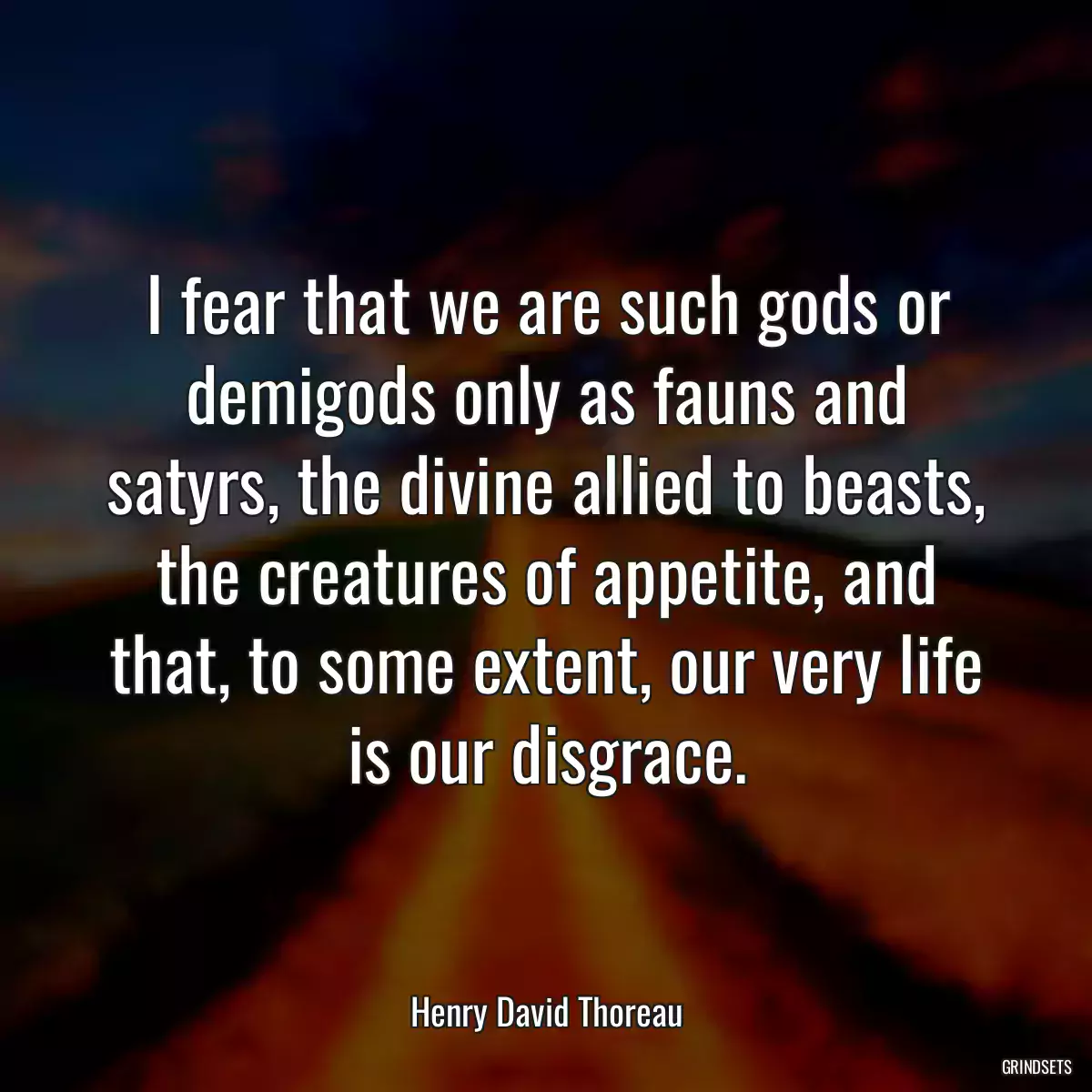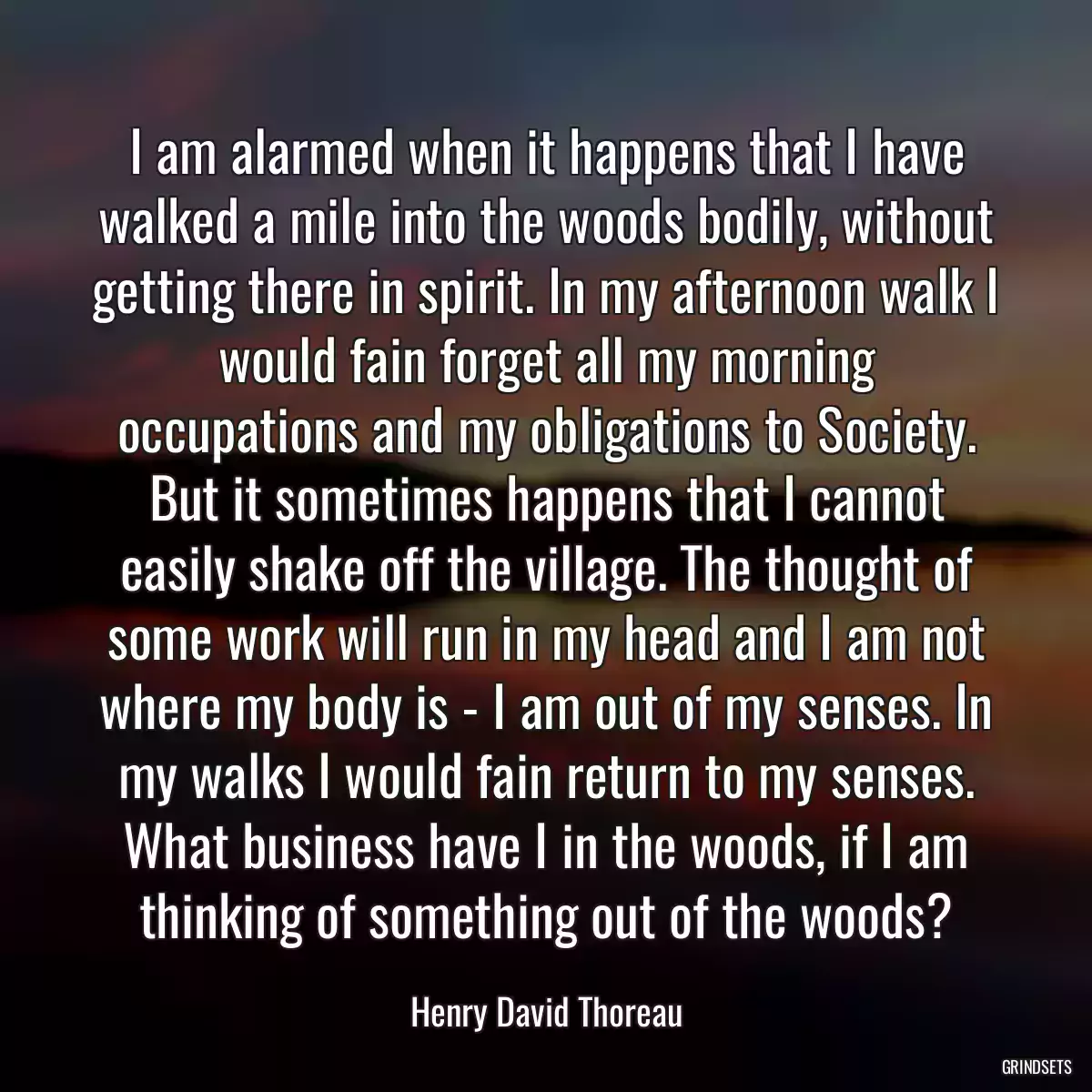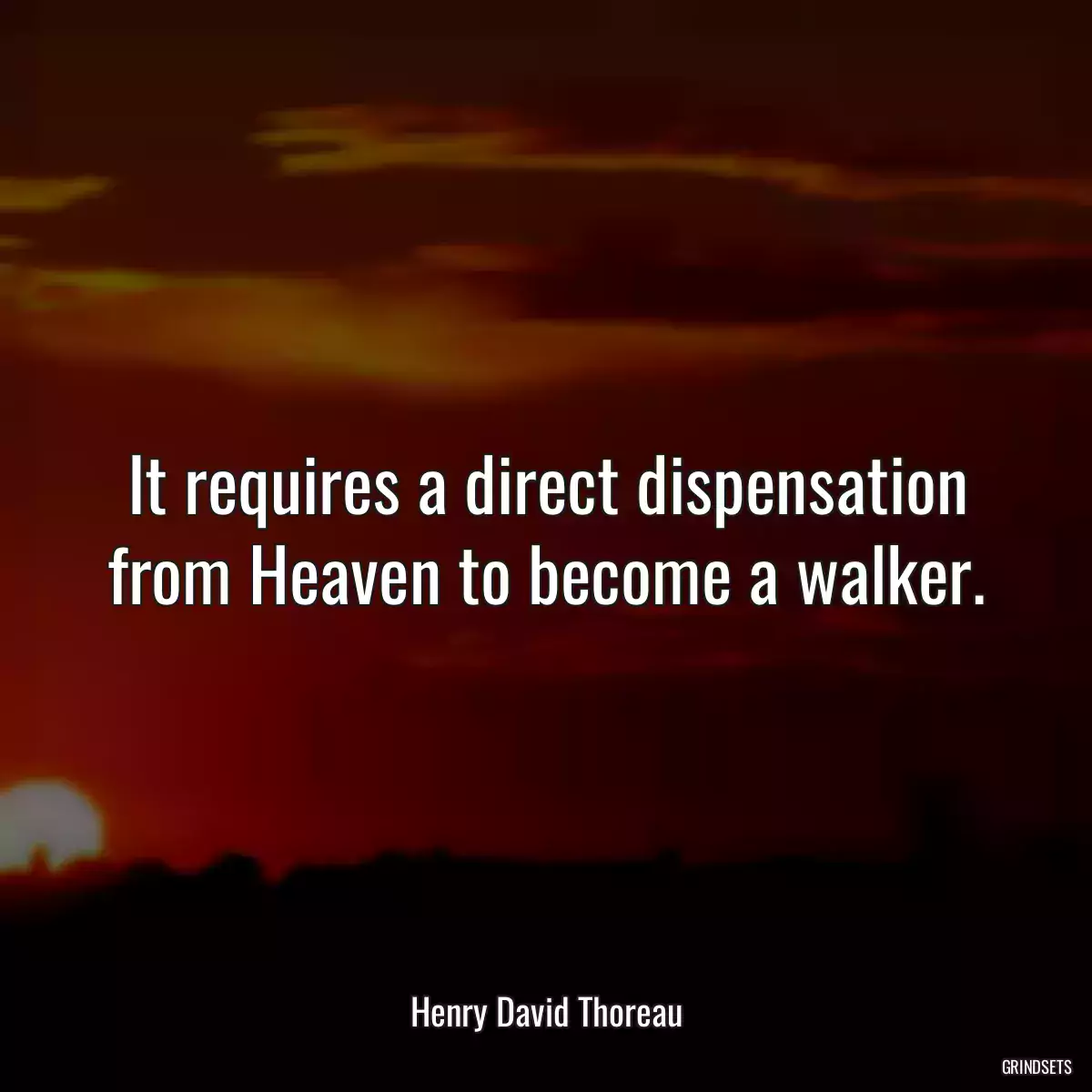
Quotes Henry David Thoreau - page 16
Find dozens of Henry David Thoreau with images to copy and share.

Pray, for what do we move ever but to get rid of our furniture, our exuviæ; at last to go from this world to another newly furnished, and leave this to be burned?
Indeed, the life of cattle, like that of many men, is but a sort of locomotiveness; they move a side at a time, and man, by his machinery, is meeting the horse and the ox half-way.
Statesmen and legislators, standing so completely within the institution, never distinctly and nakedly behold it. They speak of moving society, but they have no resting-place without it. They may be men of a certain experience and discrimination, and have no doubt invented ingenious and even useful systems, for which we sincerely thank them; but all their wit and usefulness lie within certain not very wide limits. They are wont to forget that the world is not governed by policy and expediency.
You may also like
If you chance to live and move and have your being in that thin stratum in which the events that make the news transpire,--thinnerthan the paper on which it is printed,--then these things will fill the world for you; but if you soar above or dive below that plane, you cannot remember nor be reminded of them.
Disobedience is the true foundation of liberty. The obedient must be slaves.
I think that I cannot preserve my health and spirits, unless I spend four hours a day at least - and it is commonly more than that - sauntering through the woods and over the hills and fields, absolutely free from all worldly engagements.
I have met with but one or two persons in the course of my life who have understood the art of Walking, that is, of taking walks,-who had a genius, so to speak, for sauntering.
I have met with but one or two persons in the course of my life who understood the art of Walking, that is, of taking walks - who had the genius, so to speak, for sauntering: which word is beautifully derived "from idle people who roved about the country, in the Middle Ages, and asked for charity, under the pretense of going à la Sainte Terre," to the Holy Land, till the children exclaimed, "There goes a Sainte-Terrer," a Saunterer, a Holy-Lander.

I am alarmed when it happens that I have walked a mile into the woods bodily, without getting there in spirit. In my afternoon walk I would fain forget all my morning occupations and my obligations to Society. But it sometimes happens that I cannot easily shake off the village. The thought of some work will run in my head and I am not where my body is - I am out of my senses. In my walks I would fain return to my senses. What business have I in the woods, if I am thinking of something out of the woods?
All good things are wild and free.
In my afternoon walk I would fain forget all my morning occupations and my obligations to society.
When we walk, we naturally go to the fields and woods: what would become of us, if we walked only in a garden or a mall?
Some do not walk at all; others walk in the highways; a few walk across lots.
The walking of which I speak has nothing in it akin to taking exercise, as it is called, as the sick take medicine at stated hours ... but is itself the enterprise and adventure of the day.
In my walks, I would fain return to my senses. What business have I in the woods if I am thinking of something out of the woods?
We should go forth on the shortest walk, perchance in the spirit of undying adventure, never to return - sending back our embalmed hearts only as relics to our desolate kingdoms.
If you would get exercise, go in search of the springs of life.
You may also like

I, who cannot stay in my chamber for a single day without acquiring some rust, and when sometimes I have stolen forth for a walk at the eleventh hour of four o'clock in the afternoon, too late to redeem the day, when the shades of night were already beginning to be mingled with the daylight, have felt as if I had committed some sin to be atoned for.